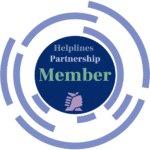
Help and Information Line
How we can help
The OCD Action Helpline is an unbiased source of information and support for people with OCD and the people in their lives. The service can offer you a safe and understanding space where you can find out more about the conditions, what can help, and how to access the right support for you or your loved one.
We’re experiencing very high volumes of calls at the moment. To allow our volunteer team the time they need to contact everyone who has recently called the helpline and left us a message, we are pausing new calls temporarily. We’ll be ready to welcome your calls again on 8th April 2024 and we invite you to contact us then. In the meantime, you can request an email via the form below. We encourage you to explore our extensive range of information resources for information on OCD, its treatments and how to access services. You can also connect with others through joining a support group or through our posting on our online forum, which is open 24 hours a day, 7 days a week. We’re sorry for this wait, and we’re grateful for your patience.
More information about the helpline can be found under the contact form below.
Get in Touch
The helpline is mostly run by our fantastic volunteers, who have a strong understanding of OCD and what impact it can have on your life. They undergo an in-depth training and are able to talk you through any of our information. Most of our volunteers are people with personal experience of OCD who now feel strong enough to provide help and support to others. The team also includes family members and loved ones of people with OCD.
Our opening times are Monday – Friday 9.30am – 8pm, but most of the time there isn’t someone there to answer straight away.
If we don’t answer your call, please leave a message and we will add you to our list to speak to a volunteer. We usually respond to calls and emails within a few days.
If you would like a call back and there are particular times that you are not available, please let us know and we will do our best to call you at a time that works for you.
Over the Christmas period our service will still be running but due to a reduced helpline team it may take us slightly longer to return your call. We will not be returning calls on Christmas Day, Boxing Day or New Years Day.
If you need urgent support, you can contact the Samaritans 24 hour support line on 116 123. They do not have training in OCD but can listen to how you are feeling and help you calm down.
You can also find the number for your local crisis and emergency line on the NHS website.
When you speak to a volunteer, you will be listened to supportively by someone who understands what you are experiencing. They can then talk you through any information that might be helpful.
You don’t need to tell us anything you don’t want to, and you are also free to tell us about anything you are going through.
There is no time limit to the length of the call – you may take as long as you need. We will also offer to send you an email or postage pack with further information, so you don’t have to memorise what we say or take any notes.
If you’re just starting out, we can explain how the condition works and what the clinically proven, and very successful, treatments for it are. We can also talk to you about the services within the NHS that can offer these and support you work out your next steps no matter where you are in your journey.
We also provide some information about your rights, including reasonable adjustments and protection from discrimination. You can find a full collection of all the information we can cover here.
The people working on the helpline are not therapists or mental health professionals so we cannot offer ‘clinical’ support like coping strategies, diagnosis, or personal advice about therapy or medication. All of the information we provide is general and based on official treatment guidelines and research.
Similarly, we can provide information about your legal rights but we cannot give legal advice. For example, you are entitled to reasonable adjustments and we can explain how they work, but we can’t tell you whether a particular adjustment is reasonable or not – that must be discussed with your employer / university / service provider
We also don’t offer ongoing emotional support. We are here to listen as well as give you information, but cannot provide regular calls to talk about how you are feeling. We also don’t provide reassurance against your worries and intrusive thoughts.
Due to our confidentiality policy, we cannot contact someone who has not reached out to us themselves. If you are calling about a loved one, we can talk to you about the support available to them and the best way for them to get in touch with us.
Our Helpline is a confidential service and we do not share the details of your call with any other person outside of the organisation. We do not record calls or keep notes about the conversations we have.
You do not need to give us any information about yourself apart from what we need to get in touch with you (phone number or email address). These are only used to contact you and all information is deleted on a regular basis.
In extreme circumstances, where there is a real and present threat of harm to a caller or another individual/s, we will break confidentiality. We will never report someone because of their intrusive thoughts – we understand that these are things you fear more than anything, and we know they are not a danger.
Sometimes, supervisors or volunteers who are in training will listen in to calls on the helpline. This is to help maintain the quality of our service and make sure that new volunteers are fully prepared.
For more information about our service, you can access the following documents:

